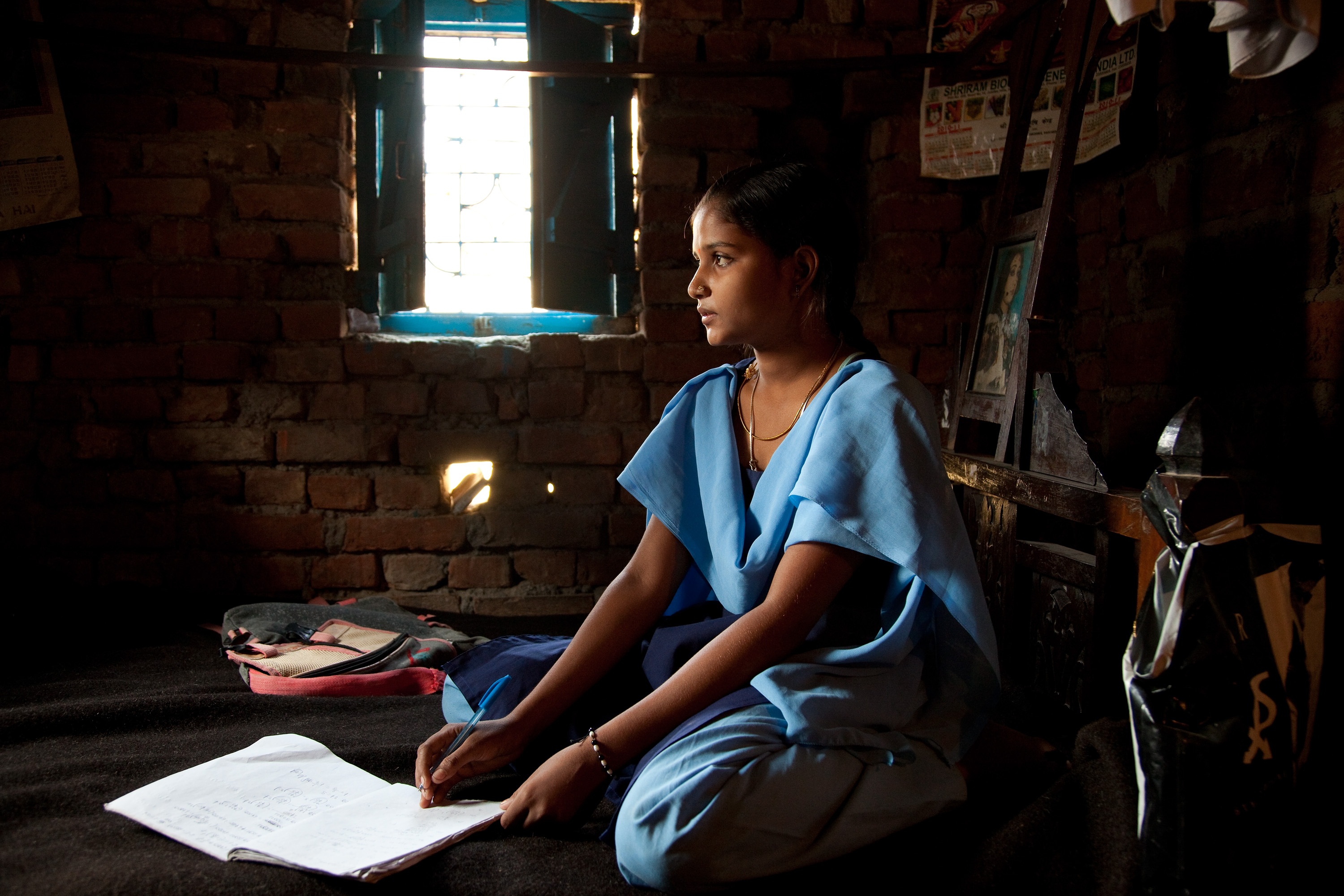Right to Education: Balance the Gender
“A good teacher can inspire hope, ignite the imagination, and instil a love of learning.” Brad Henry
While we in India celebrate the birthday of Dr. Sarvepalli Radhakrishnan (05 September) as Teacher’s Day, the very idea of celebrating this took root in the 20th century. In most countries, it is a day marked to celebrate a local educator or an important milestone in education. Indeed, it is a special day for the appreciation of teachers, and usually includes celebrations to honour them for their special contributions in a particular field area, or the community in general.
In India, 05 September is celebrated as Teaches' Day as a mark of tribute to the contribution made by teachers to the society. Dr. Sarvapalli Radhakrishnan, who was a staunch believer of education, was also a well-known diplomat, scholar, the President of India and above all a great teacher.
Our country is a combination of two sides… One is the modern side, that believes in education and development and the other side is backward that craves for development and cries for want of education and facilities. Unfortunately, the backward ones have been left far behind. Unable to cope up with the pace the modern side is moving behind, it is lagging and also waiting for a push to move ahead. This area needs help and our focal point must be to educate the needy and those that are from the economically weaker section of our society. Let’s not forget that both are important as both comprise our great country India.
Children do dream of becoming like their role models: Teachers. These days, a career as an educator has lost much of its appeal. As these kids grow up, reality creeps in: teaching calls for long hours of work, and the pay is rarely commensurate to the expertise required. The realities are worse in government schools and also some public schools.
An educator gives justice to the description of teaching as a noble profession. Teachers are in the front line of efforts to instil in the nation’s most important resource, its human capital, the qualities needed for us to grow and compete. Our country has lagged behind as compared to many of its Asian neighbours in competitiveness. This can be attributed in part to a serious lack of qualified teachers.
While many from the teaching fraternity keep protesting funding cuts and low pay, there is no satisfactory relief in sight for the country’s army of educators. But if teaching has become a profession for the overworked and underpaid, it doesn’t have to be a thankless one. We must recognise the importance of teachers and the role played by teachers in shaping the minds of the youth and in the life-long learning process.
Equally important is gender balance as two-thirds of the world’s illiterates are women. This has made gender balance in the teaching pool a key concern of the UN. We need to promote the inclusion of more women in the teaching profession. We also need to address the problem of under-appreciation for the value of teachers’ work.
We also need to understand the basics that it is not necessary that every child becomes a doctor, engineer or scientist but that every child has the right to education. Education is a fundamental human right and essential for the exercise of all other human rights. It promotes individual freedom and empowerment and yields important development benefits. Yet millions of children and adults remain deprived of educational opportunities, many as a result of poverty. Education is a powerful tool by which economically and socially marginalized adults and children can lift themselves out of poverty and participate fully as citizens.
The United Nations Convention on the Rights of the Child (UNCRC) defines ‘Child Rights’ as the minimum entitlements and freedoms that should be afforded to every citizen below the age of 18 regardless of race, national origin, colour, gender, language, religion, opinions, origin, wealth, birth status, disability, or other characteristics.
The father of modern education—John Amos Comenius proposed – “All persons should be educated, so we could have peace in the world.” Visionaries of the world understood that peace meant guaranteeing every person certain rights that are conditional for humanity—education being one of the most important.
The addition of the Right to Education (RTE) in the Universal Declaration of Human Rights in 1948 was the beginning of a remarkable expansion of educational opportunities around the world. The parliament of India enacted the Right of Children to Free and Compulsory Education Act or Right to Education Act (RTE) on August 2009. The same got enforced on April 1st 2010.
As per the act, education is a fundamental right of every child who is between 6 and 14 years old. The act also states that until the completion of elementary education, no child shall be held back, expelled or required to pass a board examination. There is also a provision for special training of school drop-outs to bring them up to par with students of the same age.
A child has the right to be given an opportunity to study to learn and not just to achieve. Teachers must be empowered as a critical step towards quality education and sustainable societies.
Students are the true representatives of their teachers, mentors and guides.
~ Thank a teacher today ~





